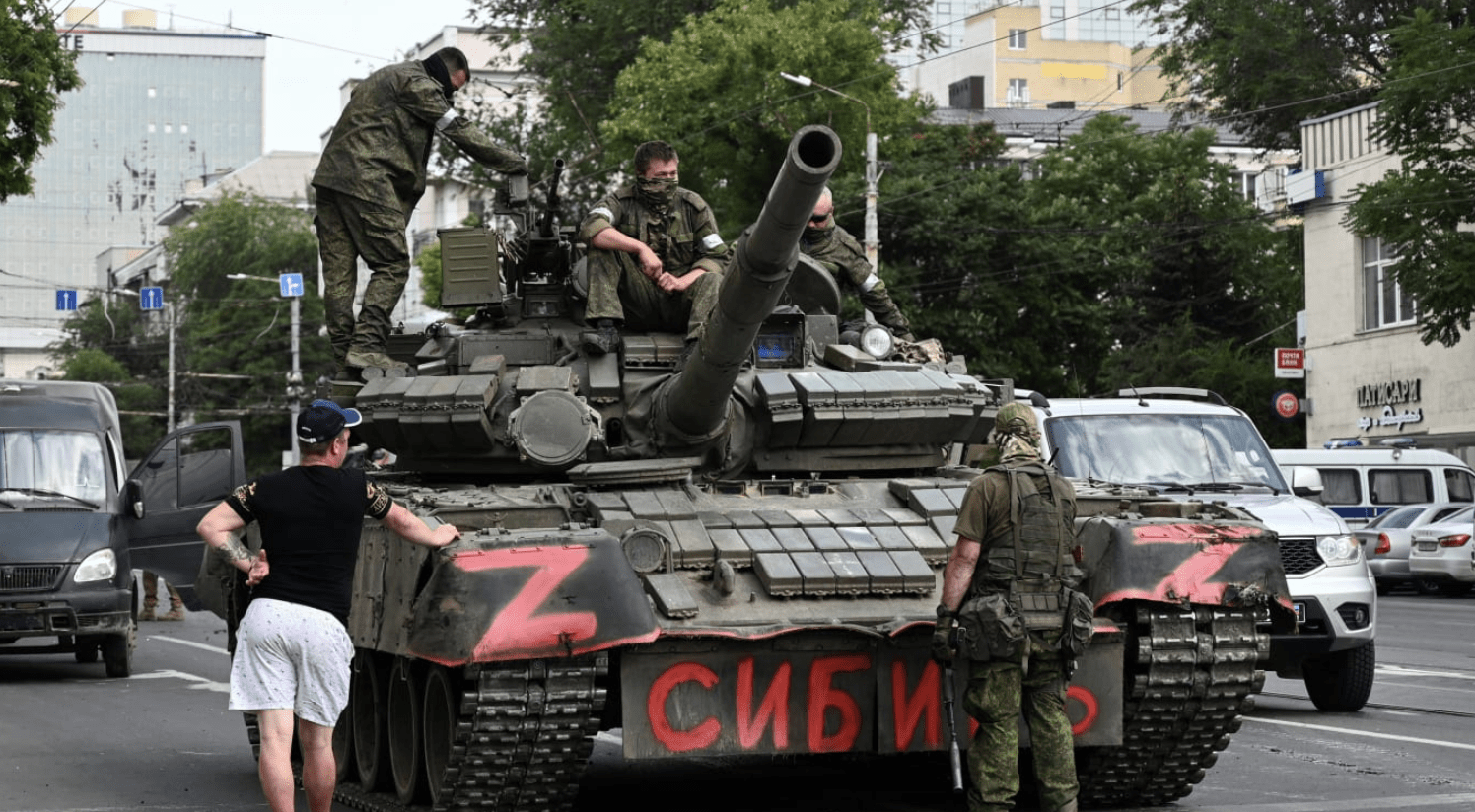Was Vladimir Putin’s Very Bad Weekend the End of an Era?
 Reuters
Reuters
Jeremy Kinsman
June 26, 2023
“The past is never dead. It’s not even past”
~ William Faulkner
The Prigozhin mutiny is a massive event. It is the beginning of the end of the Putin regime that is based on maskirovka, a Russian doctrine of deception with the intent of confusing the target.That target has always been the Russian people, to master and channel their broken psychology, to mould them into compliant obedience.
In their dreadful 20th century, Russians rose up and were then squashed down, force-fed with millenarian delusion that transmuted into mass murder of its own citizens by the regime. The effect of that trauma is inter-generational and alive today. Both Mikhail Gorbachev’s optimistic sweetness and Vladimir Putin’s pessimistic brutality have been extreme examples of survivor syndrome.
The overwhelming remainder of Russians were in the vast middle, numbed into compliance, trusting no-one but family and friends, personal defences of evasion always at the ready. A doctrine that had sought the elimination of the private realm in fact cultivated it. Its dominant feature is suppressed anxiety. Today it must be nearing the boiling point.
In October, 1993, when I was Canada’s ambassador to Russia, a constitutional crisis broke out in Moscow between Boris Yeltsin’s reform administration and opposition from the Soviet-era Russian parliament composed largely of reactionary communists. Then too, a private army-militia came into play, the 5,000-strong force that served the parliament’s chairman, Ruslan Khasbulatov, who let them loose over a weekend of street combat, leaving 147 people dead. TV came back on early Monday morning to show four tanks lined up against the Russian “White House”, where parliament sat, and where the rebel militia had its HQ.
Much about 1993 is now misremembered — Yeltsin is regularly depicted as a usurper who turned his tanks on an elected parliament. In fact, of the 12 shells fired, 10 were dummies for effect. The two that broke the walls were enough to end the crisis, as throwback legislators and would-be fighters shuffled out to be arrested.
The reaction of the once-again traumatized and sleepless city and country was summed up on a TV talk panel that followed — Russian TV and talk in those days, as opposed to now, being defined by free speech. The question asked was “Why can’t we be ‘normal’?” Why can’t Russians live normally, like other people, without fighting each other, killing, controlling, taking?
I’d bet anything that this same question is being privately debated around millions of Russian kitchen tables today.
Putin became a popular leader because he seemed to deliver on the promise of stability and security after the chaos of the 1990s when botched reform and transformation led to “the wreckage of everyday life,” per journalist David Remnick.
Make no mistake; Putin is gravely wounded. He, too, is seen as overwhelmed. His words have been shown to be empty. His time is now past. His war is lost.
Putin’s governments (and the world price of oil and gas) awarded prosperity Russians had never known. But he subtracted their newly-discovered democracy in return, substituting waning freedom with renewed national grandeur. For a while, Russians have seemed flattered by Putin’s cockamamie notions of russkiy mir: an entitled, Russia-centered, exceptionalist, world centre of … it’s not clear ‘what,’ exactly, except a xenophobic leaning to power and violence that he eventually steered to invading Ukraine, just when material life in Russia was mostly okay for most people.
He didn’t destroy Ukraine. To the contrary, he has shown it to be a demonstrably preferable place, while turning Russia back into the abhorred police state Russians thought they had escaped. He has broken the promise of security and stability and has undermined prosperity. He has lost trust.
Prigozhin — who has come across in Russia as an action-hero character in a colourless landscape — wrote things on Friday for the country to see on social networks that have been unsayable, on penalty of prison: that this war was a fraud, unnecessary, and a catastrophe, which it most demonstrably is, for everybody to see, whatever the Russian courts say. Until Friday, Prigozhin had criticized only its management. Now, he trashed the whole project. An open secret is fast becoming a public truth.
Implicit was his trashing of The One responsible. In 1991, when Gorbachev stepped off his rescue flight back to Moscow after the aborted coup, his tanking popularity had a tick of sympathy upward. But within days, it sank to new lows. He had been wounded, and was seen to be overwhelmed. Over the next six months, the ascendant Yeltsin cleaned out Gorbachev and the Soviet Union itself, replacing the Soviet red banner with the Russian tricolor at the Kremlin on Christmas day, 1991.
Make no mistake; Putin is gravely wounded. He, too, is seen as overwhelmed. His words have been shown to be empty. His time is now past. His war is lost.
Who knows what happens next? There is no Yeltsin in the wings. There could be someone more awful who makes a move. But Russians don’t need a Tsar. They don’t “love to feel the whip,” as Empress Alexandra once said.
But they do abhor weakness. They know they deserve much better than this. They deserve to feel “normal”.
It will be another generation before Russians can get past the shame and cost of this grotesque extended experience, especially the invasion — botched, en plus — of a now forever-alienated, decent neighbour. But they eventually will, and perhaps finally find mental sanctuary from their cruel and destructive past.
Policy Contributing Writer Jeremy Kinsman is a former ambassador to Russia, the EU and Italy, as well as a former High Commissioner to the UK. He is a Distinguished fellow of the Canadian International Council.
